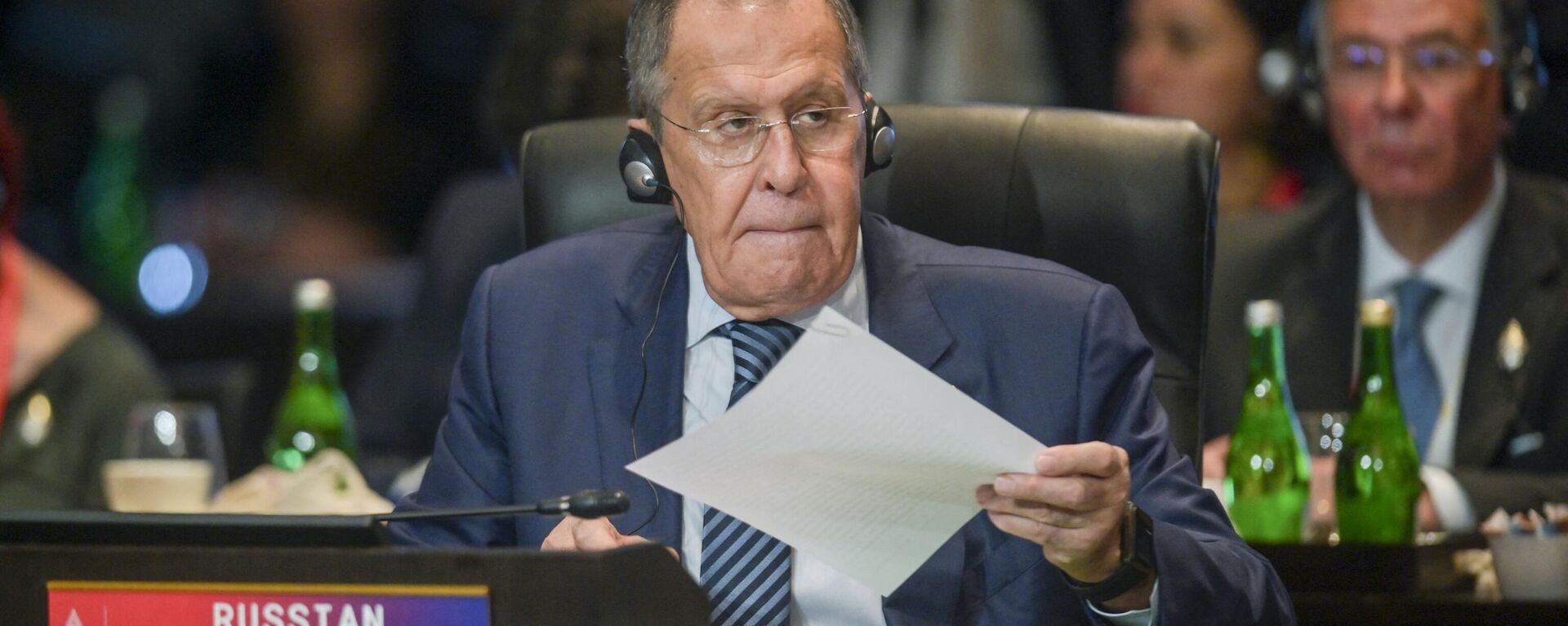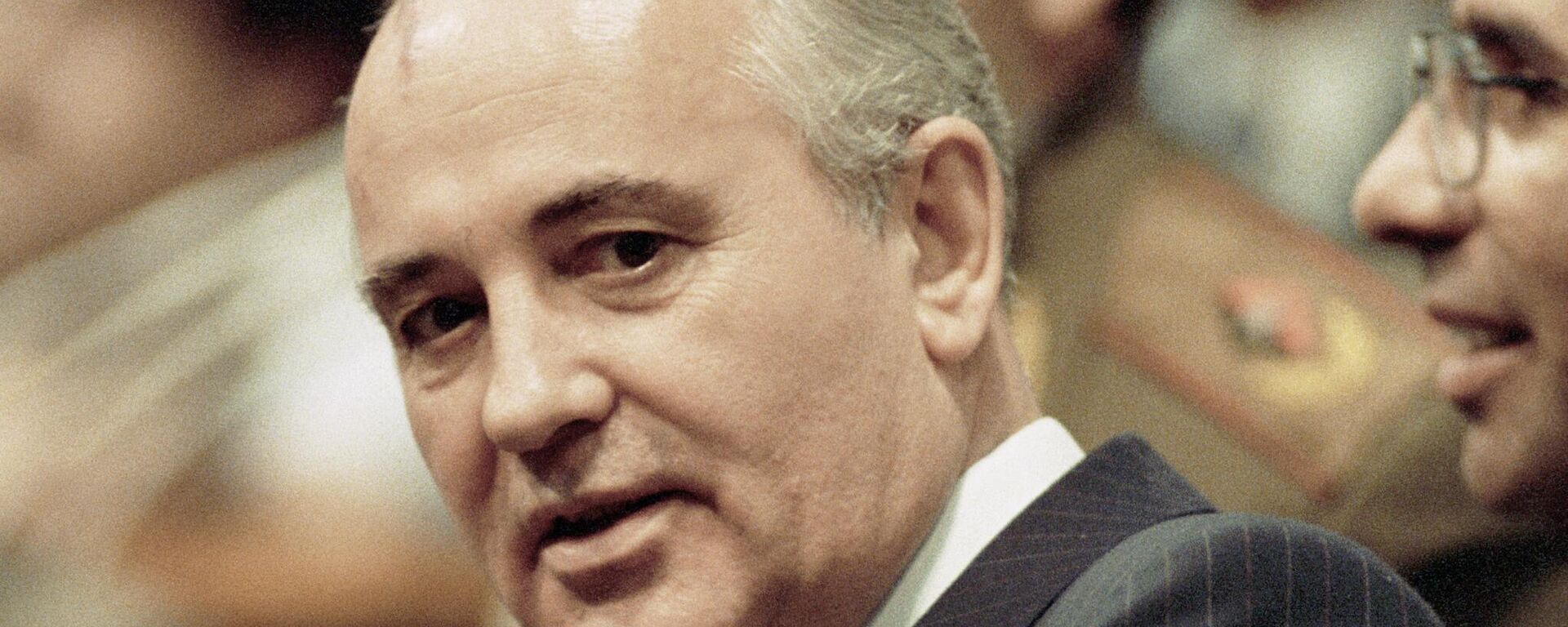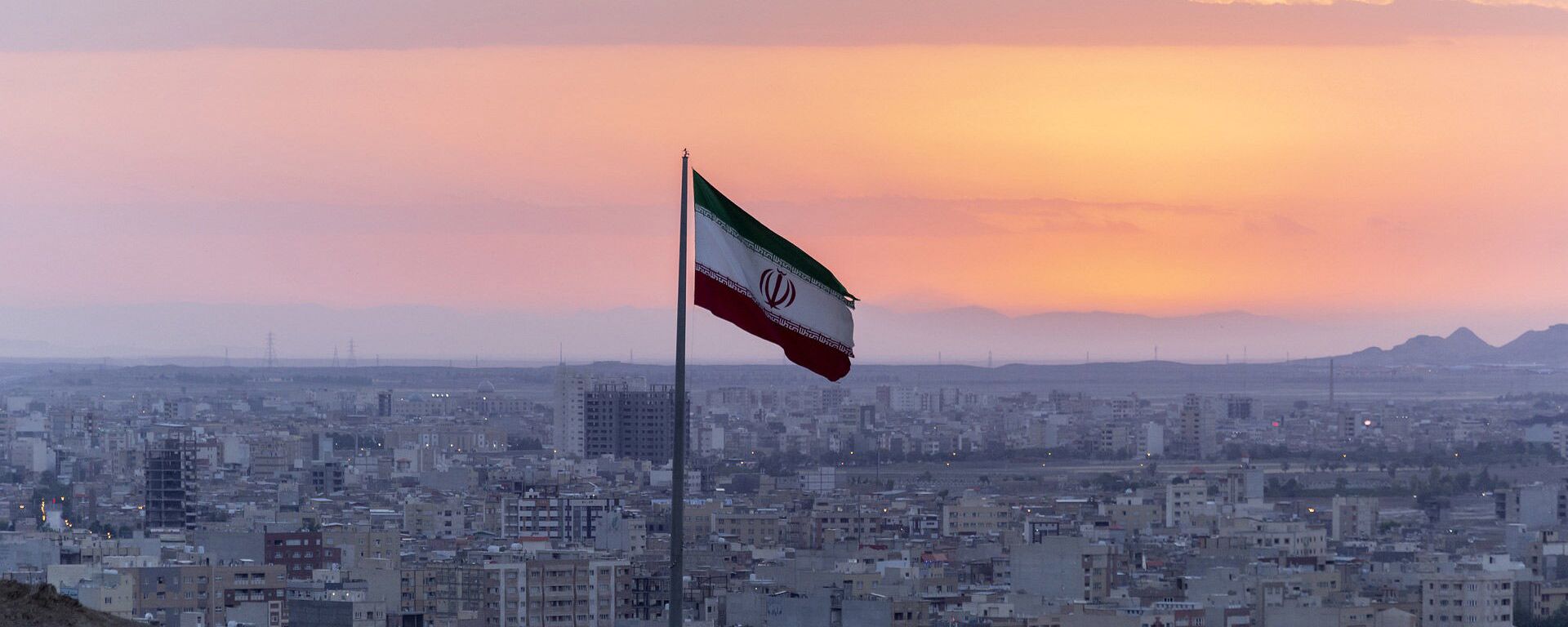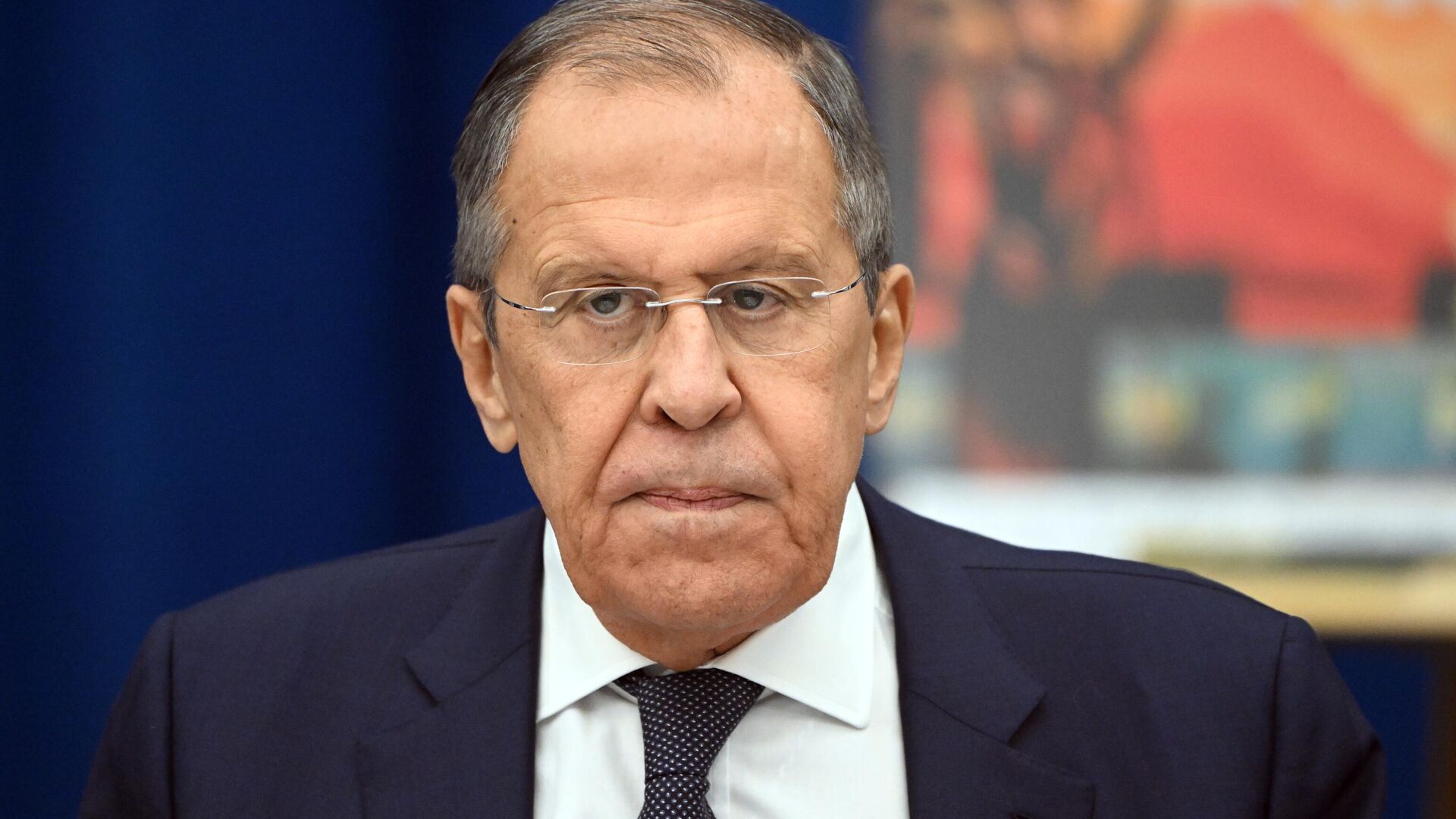https://sputnikglobe.com/20221229/its-hard-to-say-if-any-adequate-politicians-are-left-in-ukraine-sergey-lavrov-1105916801.html
It's Hard to Say If Any ‘Adequate’ Politicians Are Left in Ukraine: Sergey Lavrov to Sputnik
It's Hard to Say If Any ‘Adequate’ Politicians Are Left in Ukraine: Sergey Lavrov to Sputnik
Sputnik International
Russian Foreign Minister Sergey Lavrov has summed up the outgoing year in an interview with Sputnik, weighing in on whether negotiations with Ukraine are... 29.12.2022, Sputnik International
2022-12-29T14:29+0000
2022-12-29T14:29+0000
2022-12-30T11:06+0000
russia
russia
ukraine
sergey lavrov
politics
us
https://cdn1.img.sputnikglobe.com/img/07e6/0c/1e/1105915560_0:156:3089:1893_1920x0_80_0_0_e17d298d00fcaa31a3182418531f6bda.jpg
Sputnik: Is there any political force or specific politician in Ukraine now with whom Moscow would be ready to negotiate, and, if not, could such a figure appear in the foreseeable future? Sergey Lavrov: The current assemblage of Ukrainian politicians is well known to everyone for their inability to negotiate. Most of them are outright Russophobes. Let me remind you that immediately after the start of Russia’s special military operation in Ukraine on February 24, President Volodymyr Zelensky came up with the initiative to sit down at the negotiating table. We did not reject it and agreed to a meeting with his representatives. Several rounds of negotiations have shown that it is possible to find mutually acceptable agreements. However, the negotiation process that began in February laid bare Zelensky's complete lack of independence in making important decisions.Already in April, at the behest of the Anglo-Saxons, invested in a continuation of the conflagration, Zelensly backtracked and ended all negotiations, while also radically toughening his position. Obviously, Kiev is not ready for dialogue. Putting forward varied proposals and "formulas for peace," Zelensky cherishes the illusion of achieving, with the help of the West, the withdrawal of our troops from the Russian territory of the Donbass, Crimea, Zaporozhye, and Kherson regions, the payment of reparations by Russia, and our country’s “acknowledgement of guilt in international tribunals."Of course, Russia will not negotiate with anyone under such conditions.It is difficult to say whether any “adequate” politicians are left on territories controlled by the Kiev regime, especially given their widespread practice of suppressing any dissenting voices and carrying out extrajudicial reprisals against them. Can we expect some reasonable and sane political figure to emerge in Kiev later? We can only wait and see.Sputnik: Given the state of affairs within the Organization for Security and Co-operation in Europe (OSCE), does Moscow consider it necessary to retain its representation in the organization? Can we expect the question of suspending membership in it to arise?Sergey Lavrov: To be frank, things are not going well in the OSCE. Originally established as a platform for dialogue and cooperation on an equal footing, over the past few years it has been plunged into a deep crisis. The collective West perceives the OSCE as a tool for promoting its interests and has transformed it into an arena for propaganda battles. In 2022, Poland, with its openly anti-Russian stance, chaired the organization. Accordingly, we believe that the Poles succeeded in only one thing – they reduced to zero the effectiveness of the OSCE’s work.For example, the expansion of NATO, bringing its military infrastructure closer to Russia's borders, grossly violates the obligation not to bolster one's own security at the expense of the security of others. Now we are reaping the fruits of the selfish, short-sighted policy of our former partners, whose credibility has been thoroughly undermined. And one of the lessons to be drawn is that if and when we return to working together, it will have to be done on a new basis, because the old approaches no longer work.Sputnik: What is your assessment of the situation around the Joint Comprehensive Plan of Action (JCPOA)? Has the "point of no return" been passed in attempts to resurrect work on the deal? If so, is this fraught with risks of a fresh escalation of tensions in the region and on the international arena in general?Sergey Lavrov: Russian diplomacy has never been prone to defeatism. It is the West that time and again says that all is lost. They are once again trying to stir up a global fear of the so-called Iranian threat. However, they do not like to recall that the JCPOA worked perfectly until the United States decided to abandon the "nuclear deal" overnight, in violation of its own obligations stemming from UN Security Council Resolution 2231. Let me remind you, this happened in May 2018.From a technical point of view, negotiations to "reboot" these historic agreements have reached the stage where the main approaches have been drawn, and the time has come to make responsible decisions. We are ready for this. President Vladimir Putin has repeatedly emphasized that the shortest and most effective way lies through the strict observance of their obligations by all parties concerned. This is what everything is built on.We proposed a simple and clear-cut model: it presupposes the United States and Iran simultaneously and step by step moving towards each other, gradually returning to compliance with the requirements of the JCPOA. All details have been worked out to the smallest detail. Such a scenario can be implemented, provided there is political will.The truth is, however, that at the finish line, the Americans and Europeans have abruptly dialed back momentum, switching to stirring up the internal political situation in Iran. In November, there emerged an anti-Iranian resolution at the IAEA Board of Governors, which not only was not supported by China, but also by a number of other countries. Furthermore, the West instigated a hue and cry at the UN Security Council in connection with alleged deliveries of Iranian "drones" to Russia. As usual, unable and unwilling to produce facts, they opted for the preferred "highly likely" style.Meanwhile, life has proven that there is no reasonable alternative to the JCPOA. We consider it irresponsible to speculate about a "Plan B" and other unacceptable options. They can only result in escalation, an arms race, and open conflict fraught with irreversible consequences.To ensure long-term normalization of the situation around Iran, Russia has proposed the Collective Security Concept for the Persian Gulf Region. Last year, it was submitted to the capitals of the Gulf States for consideration. The countries of the region have the final say on these proposals, for which they shall have to overcome differences and create a solid architecture for maintaining mutual confidence and reducing security risks.Sputnik: Does Russia expect Armenia and Azerbaijan to sign a peace treaty in the coming months, and will it specify the status of Nagorno-Karabakh?Sergey Lavrov: It would be more logical to readdress this question to the negotiating parties, i.e. Baku and Yerevan. They are the ones who determine the dynamics of contacts and define the content of a future peace treaty. Russia, which has relations of strategic partnership and alliance with both Azerbaijan and Armenia, renders all possible assistance to this process, both, in terms and volume, that our Azerbaijani and Armenian friends are interested in.
https://sputnikglobe.com/20221115/lavrov-other-countries-realize-washington-provoked-ukraine-conflict-despite-us-claims-1104205034.html
https://sputnikglobe.com/20220831/gorbachev-was-promised-non-expansion-of-nato-his-mistake-was-to-believe-it-ex-us-official-says-1100199807.html
https://sputnikglobe.com/20220901/tehran-sends-constructive-response-to-us-proposals-on-jcpoa-foreign-ministry-declares-1100289567.html
russia
ukraine
Sputnik International
feedback@sputniknews.com
+74956456601
MIA „Rosiya Segodnya“
2022
Sputnik International
feedback@sputniknews.com
+74956456601
MIA „Rosiya Segodnya“
News
en_EN
Sputnik International
feedback@sputniknews.com
+74956456601
MIA „Rosiya Segodnya“
Sputnik International
feedback@sputniknews.com
+74956456601
MIA „Rosiya Segodnya“
russia, ukraine, sergey lavrov, politics, us
russia, ukraine, sergey lavrov, politics, us
It's Hard to Say If Any ‘Adequate’ Politicians Are Left in Ukraine: Sergey Lavrov to Sputnik
14:29 GMT 29.12.2022 (Updated: 11:06 GMT 30.12.2022) Russian Foreign Minister Sergey Lavrov has summed up the outgoing year in an interview with Sputnik, weighing in on whether negotiations with Ukraine are possible in principle.
Sputnik: Is there any political force or specific politician in Ukraine now with whom Moscow would be ready to negotiate, and, if not, could such a figure appear in the foreseeable future?
Sergey Lavrov: The current assemblage of Ukrainian politicians is well known to everyone for their inability to negotiate. Most of them are outright Russophobes. Let me remind you that immediately after the start of Russia’s special military operation in Ukraine on February 24, President Volodymyr Zelensky
came up with the initiative to sit down at the negotiating table.
We did not reject it and agreed to a meeting with his representatives. Several rounds of negotiations have shown that it is possible to find mutually acceptable agreements. However, the negotiation process that began in February laid bare Zelensky's complete lack of independence in making important decisions.

15 November 2022, 09:46 GMT
Already in April,
at the behest of the Anglo-Saxons, invested in a continuation of the conflagration, Zelensly backtracked and ended all negotiations, while also radically toughening his position. Obviously, Kiev is not ready for dialogue. Putting forward varied proposals and "formulas for peace," Zelensky cherishes the illusion of achieving, with the help of the West, the withdrawal of our troops from the Russian territory of the Donbass, Crimea, Zaporozhye, and Kherson regions, the payment of reparations by Russia, and our country’s “acknowledgement of guilt in international tribunals."
Of course, Russia will not negotiate with anyone under such conditions.
It is difficult to say whether any “adequate” politicians are left on territories controlled by the Kiev regime, especially given their widespread practice of suppressing any dissenting voices and carrying out extrajudicial reprisals against them. Can we expect some reasonable and sane political figure to emerge in Kiev later? We can only wait and see.
Sputnik: Given the state of affairs within the Organization for Security and Co-operation in Europe (OSCE), does Moscow consider it necessary to retain its representation in the organization? Can we expect the question of suspending membership in it to arise?
Sergey Lavrov: To be frank,
things are not going well in the OSCE. Originally established as a platform for dialogue and cooperation on an equal footing, over the past few years it has been plunged into a deep crisis. The collective West perceives the OSCE as a tool for promoting its interests and has transformed it into an arena for propaganda battles. In 2022, Poland, with its openly anti-Russian stance, chaired the organization. Accordingly, we believe that the Poles succeeded in only one thing – they reduced to zero the effectiveness of the OSCE’s work.
This hardly came as a surprise to us. After all, in general, Western countries, which are, for the most part, both OSCE and NATO members, have long and purposefully violated the principles of the Vienna organization, the spirit and letter of the basic documents adopted by it, including at the highest level – in the field of European security.
For example, the
expansion of NATO, bringing its military infrastructure closer to Russia's borders, grossly violates the obligation not to bolster one's own security at the expense of the security of others. Now we are reaping the fruits of the selfish, short-sighted policy of our former partners, whose credibility has been thoroughly undermined. And one of the lessons to be drawn is that if and when we return to working together, it will have to be done on a new basis, because the old approaches no longer work.

31 August 2022, 01:22 GMT
Sputnik: What is your assessment of the situation around the Joint Comprehensive Plan of Action (JCPOA)? Has the "point of no return" been passed in attempts to resurrect work on the deal? If so, is this fraught with risks of a fresh escalation of tensions in the region and on the international arena in general?
Sergey Lavrov: Russian diplomacy has never been prone to defeatism. It is the West that time and again says that all is lost. They are once again trying to stir up a global fear of the so-called Iranian threat. However, they do not like to recall that the JCPOA worked perfectly until
the United States decided to abandon the "nuclear deal" overnight, in violation of its own obligations stemming from UN Security Council Resolution 2231. Let me remind you, this happened in May 2018.
From a technical point of view, negotiations to "reboot" these historic agreements have reached the stage where the main approaches have been drawn, and the time has come to make responsible decisions. We are ready for this. President Vladimir Putin has repeatedly emphasized that the shortest and most effective way lies through the strict observance of their obligations by all parties concerned. This is what everything is built on.
We proposed a simple and clear-cut model: it presupposes the United States and Iran simultaneously and step by step moving towards each other, gradually returning to compliance with the requirements of the JCPOA. All details have been worked out to the smallest detail. Such a scenario can be implemented, provided there is political will.

1 September 2022, 23:48 GMT
The truth is, however, that at the finish line, the Americans and Europeans have abruptly dialed back momentum, switching to stirring up the internal political situation in Iran. In November, there emerged an anti-Iranian resolution at the IAEA Board of Governors, which not only was not supported by China, but also by a number of other countries. Furthermore, the West instigated a hue and cry at the UN Security Council in connection with alleged deliveries of Iranian "drones" to Russia. As usual, unable and unwilling to produce facts, they opted for the preferred "highly likely" style.
Meanwhile, life has proven that there is no reasonable alternative to the JCPOA. We consider it irresponsible to speculate about a "Plan B" and other unacceptable options. They can only result in escalation, an arms race, and open conflict fraught with irreversible consequences.
To ensure long-term normalization of the situation around Iran, Russia has proposed the Collective Security Concept for the Persian Gulf Region. Last year, it was submitted to the capitals of the Gulf States for consideration. The countries of the region have the final say on these proposals, for which they shall have to overcome differences and create a solid architecture for maintaining mutual confidence and reducing security risks.
Sputnik: Does Russia expect Armenia and Azerbaijan to sign a peace treaty in the coming months, and will it specify the status of Nagorno-Karabakh?
Sergey Lavrov: It would be more logical to readdress this question to the negotiating parties, i.e. Baku and Yerevan. They are the ones who determine the dynamics of contacts and define the content of a future peace treaty. Russia, which has relations of strategic partnership and alliance with both Azerbaijan and Armenia, renders all possible assistance to this process, both, in terms and volume, that our Azerbaijani and Armenian friends are interested in.







